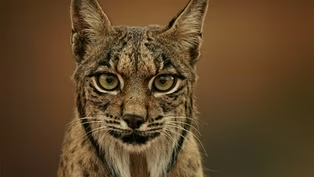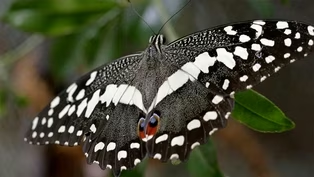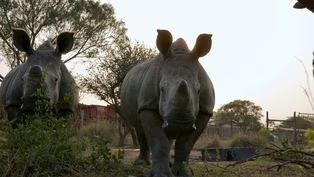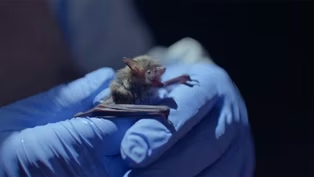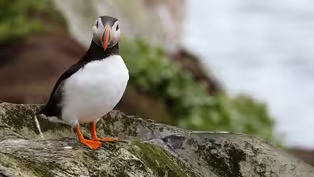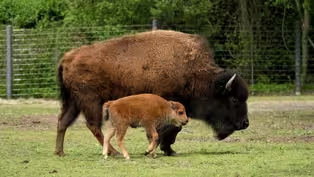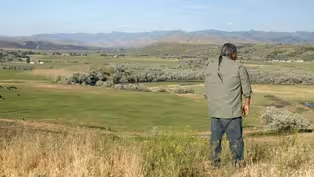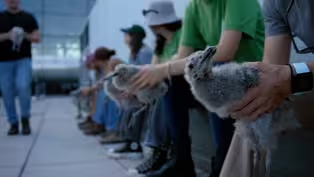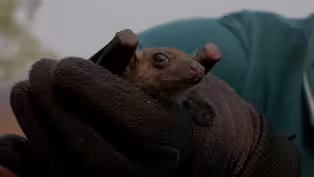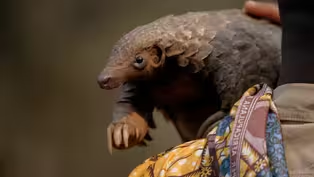
One Golden Chance | WILD HOPE
Special | 9m 57sVideo has Closed Captions
The golden lion tamarin stands as a beacon of hope and survival in the face of extinction.
The golden lion tamarin stands as a beacon of hope and survival in the face of extinction after an outbreak of yellow fever led to a loss of nearly a third of their wild population.
Problems playing video? | Closed Captioning Feedback
Problems playing video? | Closed Captioning Feedback
Major support for NATURE is provided by The Arnhold Family in memory of Henry and Clarisse Arnhold, Sue and Edgar Wachenheim III, The Fairweather Foundation, Charles Rosenblum, Kathy Chiao and...

One Golden Chance | WILD HOPE
Special | 9m 57sVideo has Closed Captions
The golden lion tamarin stands as a beacon of hope and survival in the face of extinction after an outbreak of yellow fever led to a loss of nearly a third of their wild population.
Problems playing video? | Closed Captioning Feedback
How to Watch Nature
Nature is available to stream on pbs.org and the free PBS App, available on iPhone, Apple TV, Android TV, Android smartphones, Amazon Fire TV, Amazon Fire Tablet, Roku, Samsung Smart TV, and Vizio.
Buy Now
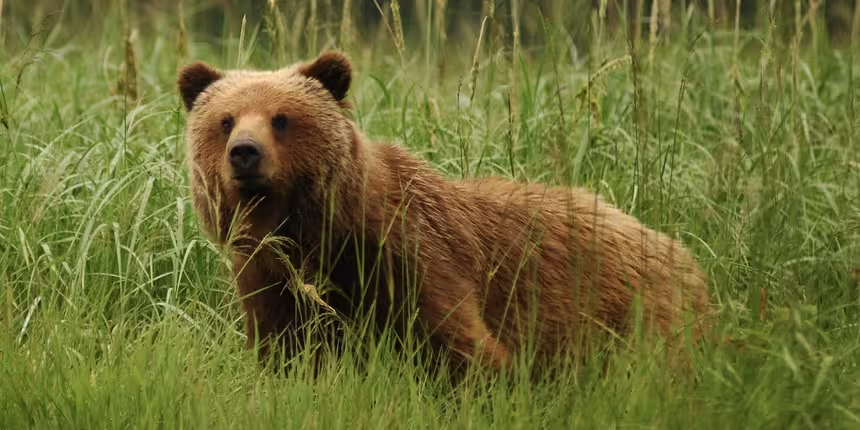
Explore More Ways to Watch
Bring the beauty and wonders of wildlife and natural history into your home with classic NATURE episodes.Providing Support for PBS.org
Learn Moreabout PBS online sponsorshipMore from This Collection
WILD HOPE is a new series of short films that highlights the intrepid changemakers who are restoring our wild places and sparking new hope for the future of our planet.
Video has Closed Captions
Once on the brink of extinction, the Iberian lynx has been given a chance to thrive again. (17m 23s)
The Butterfly Effect | WILD HOPE
Video has Closed Captions
To help stop the rise of deforestation in Zanzibar, one village has begun to farm butterflies. (12m 24s)
Video has Closed Captions
How does a densely populated nation like Singapore transform into a lush green oasis? (14m 51s)
Video has Closed Captions
For decades, rhinos have been the face of poaching. (16m 28s)
Video has Closed Captions
As a deadly fungus devastates North America’s bats, scientists are testing new ways to save them. (14m 47s)
Video has Closed Captions
In the Westman Islands, one community has banded together to save lost young puffins. (13m 15s)
Video has Closed Captions
Sixty million American bison once thundered across the prairies of North America. (18m 52s)
Reclaiming Bear River | WILD HOPE
Video has Closed Captions
The Bear River was once a lush area with wetlands, hot springs, and abundant wildlife. (17m 25s)
Building for Birds | WILD HOPE
Video has Closed Captions
Millions of migrating birds pass through our yards, but glass windows pose a deadly threat. (16m 3s)
Mission Impossible | WILD HOPE
Video has Closed Captions
Meet the genius behind the plant-based Impossible Burger. (39m 41s)
Pangolin Protectors | WILD HOPE
Video has Closed Captions
Due to the demand for their scales, pangolins are the most trafficked animal in the world. (12m 24s)
Providing Support for PBS.org
Learn Moreabout PBS online sponsorship(Andréia speaking Portuguese) (indistinct chatter) (Andréia speaking Portuguese) ♪ (Dr. Freire speaking Portuguese) (leaves rustling) (Dr. Freire speaking Portuguese) (tamarin chirping) (Dr. Freire speaking Portuguese) (Andréia speaking Portuguese) (Dr. Freire speaking Portuguese) ♪ (car engine rumbling) ♪ ♪ (bird calling) (car engine rumbling) ♪ (car engine rumbling) ♪ (car engine rumbling) ♪ (Luís speaking Portuguese) (tamarin clucks) ♪ (Luís speaking Portuguese) NARRATOR: But this forest in southeastern Brazil has not been a safe haven.
By the 1970s, habitat loss and poaching had decimated the wild tamarin population, reducing it to fewer than 200 individuals.
(Luís speaking Portuguese) ♪ NARRATOR: The crisis prompted 150 zoos to launch a worldwide breeding program to rescue the species.
(tamarins chirping) Biologists selectively bred the small primates to maintain their genetic diversity and zoo-goers fell in love.
♪ The program was so successful that by 1984, zoos began releasing captive-born tamarins back into the wild.
♪ The program is now run by the Brazilian nonprofit AMLD, with local conservationists playing a pivotal role in monitoring the monkeys.
(Andréia speaking Portuguese) (tamarins chirping) NARRATOR: Under Andréia's watch, 146 tamarins were brought in from zoos, doubling the wild population.
(Andréia speaking Portuguese) NARRATOR: But protection would require more than just breeding.
The tamarin's habitat was also in need of drastic restoration.
(birds chirping) ♪ Centuries ago, the Atlantic Forest covered over 500,000 square miles, nearly twice the area of France.
Since then, at least 75% of the region has been clear-cut.
(leaves rustling) (Luís speaking Portuguese) (Luís speaking Portuguese) (tamarins chirping) NARRATOR: Tamarins need large territories to establish new troops and prevent inbreeding.
And they won't cross open ground to get from one patch of forest to another.
So Luís and his team have replanted more than 800,000 native trees ♪ and connected forest fragments with canopy bridges, tunnels, and a highway overpass.
♪ They have expanded the forest by about 1,000 acres.
♪ These efforts have more than paid off.
(tamarins chirping) ♪ (Luís speaking Portuguese) ♪ NARRATOR: By 2005, tamarin numbers had increased to 1,600.
And by 2014, the population had more than doubled again to around 3,700.
(tamarins chirping) ♪ It was an astonishing comeback.
(tamarins chirping) ♪ But then in late 2016, a killer began stalking the Atlantic Forest.
An outbreak of yellow fever that spread south from the Amazon.
♪ Humans and tamarins can both contract the virus from mosquitoes that carry it, though they don't pass it to each other.
The monkeys are especially vulnerable to the virus, which can rupture blood vessels in vital organs.
(Luís speaking Portuguese) ♪ The numbers plummeted from a high of 3,700, down to 2,500, more than 1,000 tamarins lost.
♪ For Andréia Martins, who's dedicated the past 40 years of her life to saving the monkeys, the decline was devastating.
♪ (Andréia speaking Portuguese) ♪ ♪ NARRATOR: This time, it was a virologist who came to the rescue.
♪ (Andréia speaking Portuguese) (indistinct chatter) (Dr. Freire speaking Portuguese) (Dr. Freire speaking Portuguese) NARRATOR: A vaccine for humans.
(indistinct chatter) NARRATOR: But faced with a dire challenge, Marcos proposed a radical solution: adapt the human vaccine for the monkeys.
(Dr. Freire speaking Portuguese) ♪ NARRATOR: In 2021, clinical trials confirmed the vaccine was safe, and the team set out to immunize the wild population.
(tamarin crying) ♪ ♪ Vaccinating wild animals to prevent the spread of disease into humans is not a new practice, but using a human vaccine to protect wild animals for their own good is more novel and experimental.
(indistinct chatter) (Luís speaking Portuguese) (Dr. Freire speaking Portuguese) (Luís speaking Portuguese) NARRATOR: Even without an official assessment, the results are encouraging.
(indistinct chatter) NARRATOR: The epidemic has died down and the team is now vaccinating to try and prevent future outbreaks.
(tamarins chirping) And the tamarin numbers are rebounding.
(Luís speaking Portuguese) NARRATOR: That marks the largest population ever recorded and the fruits of 50 years of breeding programs, reforestation projects, and vaccine interventions.
(indistinct chatter) (tamarins chirping) ♪ (Andréia speaking Portuguese) ♪ NARRATOR: The team believes the tamarin population will be self-sustaining when at least 2,000 monkeys live across 25,000 connected hectares of forest.
♪ Currently, the largest continuous stretch of habitat covers about 2/3 of that.
So, there's still a way to go, but they hope to reach their goal in the next two years.
(Luís speaking Portuguese) ♪ (bird calling) ♪ ♪ ♪ ♪ ♪ ♪

- Science and Nature

Explore scientific discoveries on television's most acclaimed science documentary series.













Support for PBS provided by:
Major support for NATURE is provided by The Arnhold Family in memory of Henry and Clarisse Arnhold, Sue and Edgar Wachenheim III, The Fairweather Foundation, Charles Rosenblum, Kathy Chiao and...
